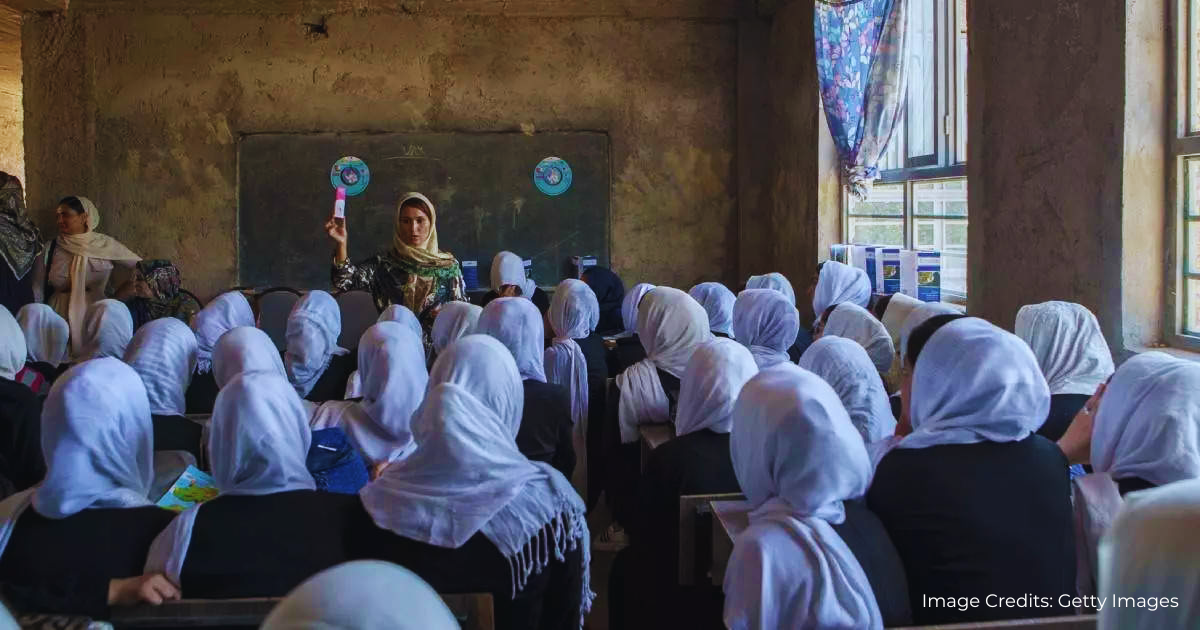Now Reading: Taliban’s Tyranny: Poisoning Attacks on Afghan Schoolgirls
-
01
Taliban’s Tyranny: Poisoning Attacks on Afghan Schoolgirls

Taliban’s Tyranny: Poisoning Attacks on Afghan Schoolgirls
Introduction :
Women and girls in Afghanistan are in a terrible predicament as a result of the Taliban’s reign, which is characterised by institutionalised oppression and a disrespect for their fundamental freedoms. On June 4th, 2023, approximately 80 girls were poisoned and hospitalised in two separate attacks at primary schools in Sar-e-Pul region, shining light on the scope of the ongoing atrocities against Afghan women. While disturbing, these poisoning occurrences are a part of a larger pattern that prevents women and girls in Afghanistan from advancing in education. In this blog article, we will investigate the facts surrounding these attacks, look at how Afghan women’s rights were violated, and think about the matter from a legal standpoint.
The Poisoning Attacks :
The poisoning attacks in the Sangcharak region of Sar-e-Pul province were directed at two primary schools, according to local officials in charge of education. 60 kids at Naswan-e-Kabod Aab School and 17 more at Naswan-e-Faizabad School contracted poisoning. The perpetrator of the crimes reportedly had a personal vendetta, albeit no more information was given.
Consequences of the Taliban Rule :
Since the Taliban took over Kabul in August 2021, their administration has steadily reduced Afghan women’s and girls’ rights and freedoms. The Taliban’s policies aim to undermine the advancements in women’s education and engagement in society that have been accomplished over the previous two decades. The Taliban forbade girls from attending schools past the sixth grade shortly after assuming power. They later put a blanket ban on women entering universities in December 2022.
The Taliban’s worrisome expansion of efforts to stifle education for women and girls is evidenced by the attacks on these primary schools and the poisoning of young girls. The Taliban seeks to prevent families from sending their girls to school by spreading fear and putting their lives in peril, continuing a cycle of ignorance and oppression.
Violated Rights and Freedom :
The poisoning attacks represent a grave violation of the fundamental freedoms and rights that everyone, regardless of gender, is entitled to. International human rights norms guarantee Afghan women the right to an education. The right to education for all people, without distinction, is emphasised in the Universal Declaration of Human Rights (UDHR). Gender equality in education is also important, as stated by the Convention on the Elimination of All Forms of Discrimination Against Women (CEDAW).
Additionally, these attacks go against children’s rights. Every child has the legal right to an education under the United Nations Convention on the Rights of the Child (UNCRC). It emphasises girls in particular, knowing how crucial it is for them to have equal access to school for their overall development and social inclusion.
Legal Perspective :
From a legal viewpoint, the poisoning attacks on Afghan schoolgirls are serious crimes that ought to be denounced and dealt with. Grave violations of international human rights law, including as those related to the rights to life, security, education, and non-discrimination, have been committed by the Taliban.
States are required by international law, as stated in numerous treaties and conventions, to defend the rights of its inhabitants, especially women and children. Even though the Afghan government is not well-known internationally, it should nonetheless be held responsible for failing to stop such attacks and protect its citizens’ rights. The Taliban must be pressured by the international community, especially institutions like the United Nations, to uphold human rights and carry out their legal commitments.
Additionally, efforts should be taken to gather information and identify the perpetrators of these acts. In order to fully investigate the incidents, bring the offenders to justice, and ensure that the victims and their families receive justice, national and international processes should be activated.
Conclusion :
The Taliban’s repressive reign and systematic efforts to deny women and children their basic rights and freedoms have once again been highlight by the poisoning attacks on Afghan schoolgirls. The advancements gained in Afghanistan’s education and empowerment of women have been significantly hampered by these instances. In addition to denouncing these assaults, the international world must unite to protect Afghan women, promote their rights, and put pressure on the Taliban to alter their repressive ideologies. Additionally, efforts should be taken to uphold the principles of international law and guarantee the victims’ justice while holding those liable. We can only work to establish a world where everyone’s rights and dignity, regardless of gender, are respected and upheld by standing together against such atrocities.
Author: Shruti Gala
Edited By: Apoorva Mehta










